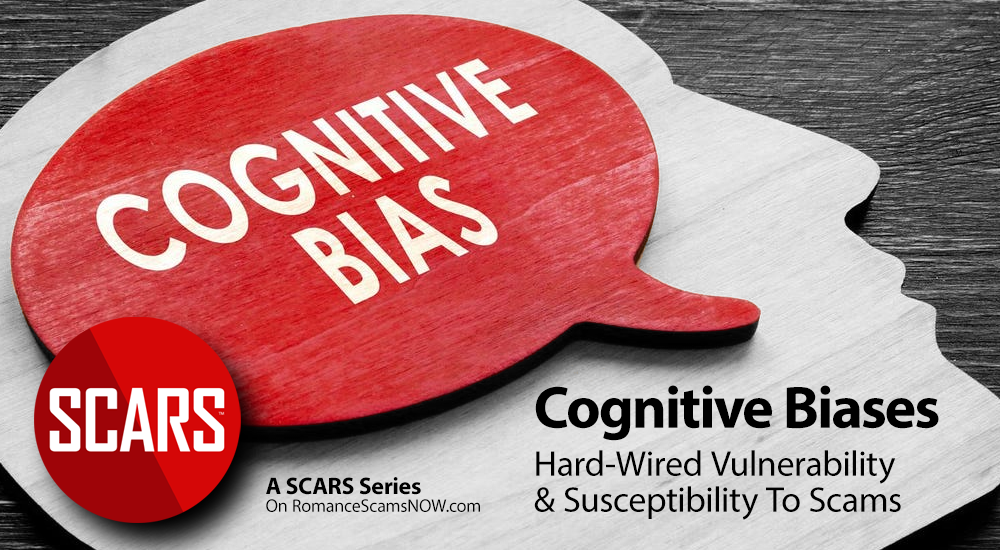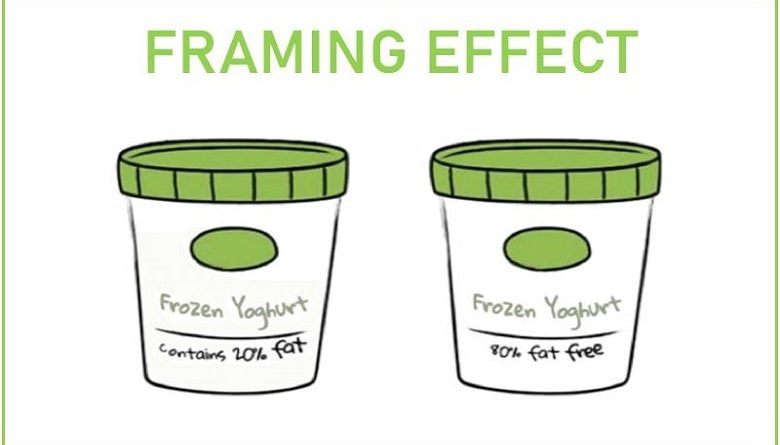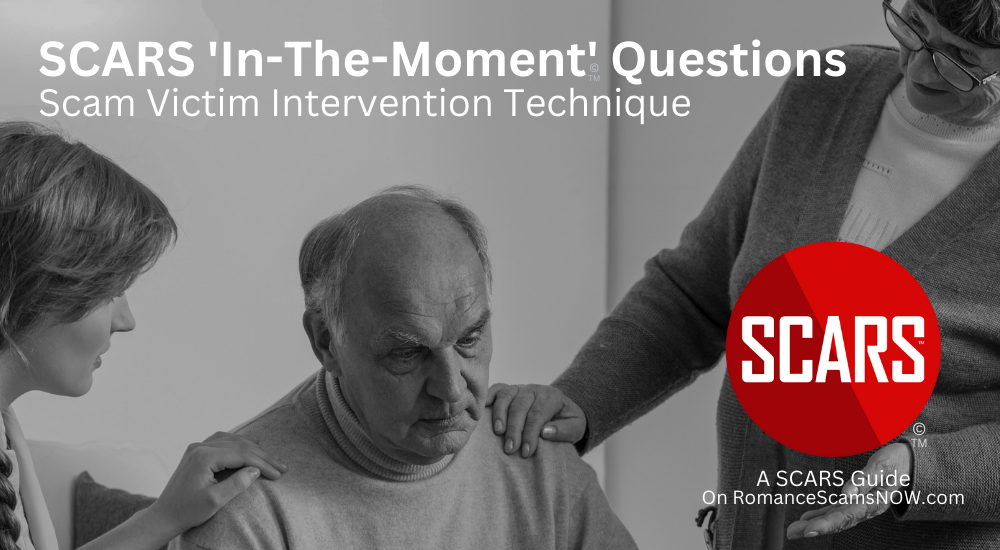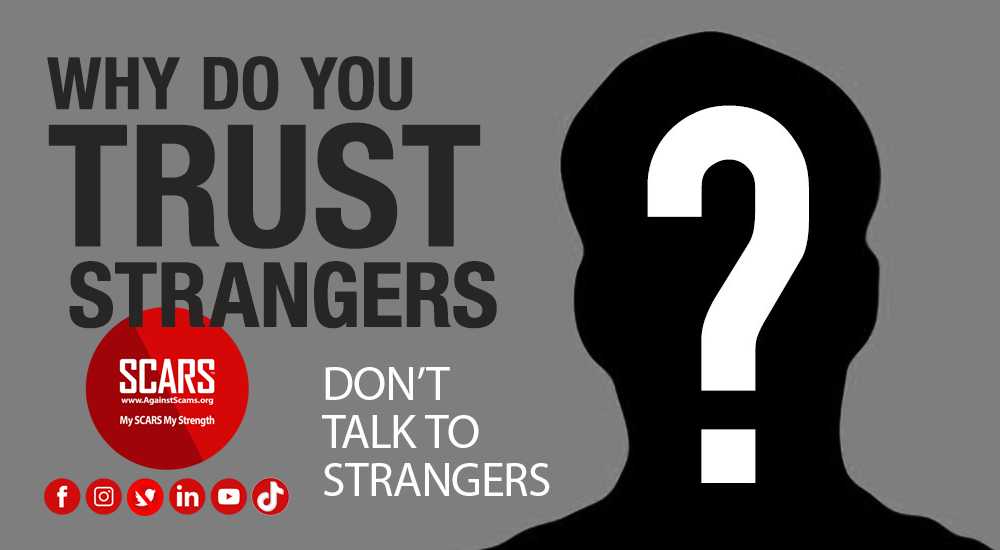The Framing Effect – Impacting Your Decisions About Your Future!
The framing effect is a cognitive bias that occurs when our perception of an issue or decision is influenced by the way it is presented to us. In other words, we are more likely to make a decision or form an opinion based on how the information is framed rather than the actual information itself.
How the Framing Effect Works
The framing effect works by tapping into our emotions and our tendency to avoid losses. When information is presented in a way that highlights potential losses, we are more likely to make risk-averse decisions. Conversely, when information is framed in a way that emphasizes potential gains, we are more likely to take risks.
This bias can be exploited by people who want to influence our decisions, such as advertisers, politicians, and salespeople. For example, an advertiser might frame a product as a way to avoid negative consequences, such as aging or social isolation, to make it more appealing to consumers.
Examples of the Framing Effect in our Daily Life
-
Medical treatment options: If a doctor presents a treatment option as having a 90% survival rate, people are more likely to choose that option than if it is presented as having a 10% mortality rate.
-
Financial investments: If an investment is presented as having a potential return of 10%, people are more likely to invest in it than if it is presented as having a potential loss of 10%. This is an example of how Pig Butchering Crypto Investment Scams lure in victims.
-
Political campaigns: Politicians often frame their opponents in a negative light to make themselves look more appealing to voters.
The Framing Effect and Romance Scams
The framing within a romance scam significantly impacts victims across various stages, manipulating emotions, trust, and perceptions throughout the process.
Lure Stage:
Initial Attraction: The framing at this stage involves creating an appealing persona or story that attracts the victim’s attention. Scammers craft profiles or personas that resonate with the victim’s desires, using flattering language, attractive photos, and shared interests to establish a connection.
In the lure stage, scammers often frame their online profiles and interactions to create an attractive and desirable persona, highlighting their positive qualities, accomplishments, and shared interests with the potential victim. They may use flattering language, compliments, and selective disclosure to frame themselves as someone the victim would want to know and be with.
This framing can make the victim more susceptible to the scammer’s advances, as they are drawn to the positive image presented and may overlook potential red flags or inconsistencies.
Grooming Stage:
Building Trust: Framing continues to intensify as scammers build trust and emotional bonds. They frame themselves as the ideal partner, demonstrating affection, understanding, and support. This phase involves sharing personal stories, creating a false sense of intimacy, and mirroring the victim’s emotions to solidify the connection.
During the grooming stage, scammers shift their framing tactics to focus on building an emotional connection with the victim. They may frame their interactions as a unique and special bond, using emotional language and expressing deep affection and care for the victim.
This framing can make the victim feel valued, loved, and emotionally invested in the relationship, increasing their vulnerability to the scammer’s manipulation.
Manipulation Stage:
Exploiting Vulnerabilities: Framing shifts subtly as scammers begin to exploit vulnerabilities discovered during the grooming phase. They frame themselves as the solution to the victim’s problems, often financial or emotional. Manipulative tactics include creating urgency, invoking guilt or pity, and weaving elaborate stories that lead the victim to believe they are the only one who can help the scammer in a crisis.
As the scam progresses into the manipulation stage, scammers employ various framing techniques to exploit the victim’s emotional attachment and gain control. They may frame financial requests as necessary expenses, emergency situations, or proof of love and commitment.
This framing can make the victim feel obligated to provide financial support, even if they are hesitant or have doubts about the scammer’s intentions.
Control Stage:
Isolation and Dependency: Framing becomes coercive (Gaslighting,) aiming to isolate the victim from their support network and reinforce dependency. Scammers frame the relationship as exclusive and use guilt or threats to discourage the victim from seeking advice or help from friends and family. The framing here reinforces the belief that the scammer is the victim’s only source of emotional support and security.
In the control phase, scammers maintain their grip on the victim by framing the relationship as essential for the victim’s happiness and well-being. They may isolate the victim from friends and family, framing their concerns and warnings as interference or jealousy.
This framing can make the victim increasingly dependent on the scammer for emotional support and validation, further solidifying the scammer’s control over the victim’s life.
Throughout these stages, the framing operates to create and perpetuate a false reality, one that aligns with the scammer’s objectives. It distorts the victim’s perception of the situation, creating a skewed narrative that reinforces the scammer’s control and authority within the relationship. This manipulation leaves victims feeling emotionally and psychologically trapped, making it difficult to recognize the fraudulent nature of the relationship until it’s too late.
Overcoming the Framing Effect in Daily Life
While the framing effect is a powerful bias, there are some things we can do to overcome it:
-
Be aware of the bias: The first step to overcoming any bias is to be aware of it. Once you know that the framing effect can influence your decisions, you can be more mindful of it and take steps to avoid its influence.
-
Consider alternative perspectives: When making a decision, try to consider the issue from multiple perspectives. This will help you to see the issue in a more balanced light and make a decision that is not based on emotional manipulation.
-
Seek out objective information: Don’t rely on biased sources of information. Instead, seek out objective information that can help you to make a more informed decision.
-
Take your time: Don’t rush into decisions. Take your time to think about the issue carefully and make sure that you are not being influenced by the framing effect.
By being aware of the framing effect and taking steps to overcome it, we can make more informed decisions that are based on logic and reason rather than on emotion and manipulation.
The Framing Effect’s Impact on Victim Recovery
The framing effect in a scam victim’s recovery from a romance scam can significantly impact their healing process.
Understanding the Manipulation:
Recognizing the framing used by scammers is crucial. Victims need to understand how the framing influenced their emotions, decisions, and perceptions during the scam. This comprehension helps them realize that the emotions they experienced were a result of manipulation, not genuine connections. In other words, it was not love, it was a deliberate violation!
Rebuilding Trust and Identity:
Victims often grapple with a shattered sense of trust and self-identity. Understanding the framing effect helps them differentiate between the false narrative created by the scammer and their authentic self. It aids in rebuilding trust in their own judgment and identity.
Emotional Healing:
Awareness of the framing’s impact allows victims to work through the emotional trauma. They can process the experience more objectively, addressing feelings of betrayal, guilt, or shame induced by the scam. This awareness helps in regaining emotional stability.
Preventing Recurrence:
Learning about the framing effect serves as a protective measure. Victims become more vigilant against similar manipulative tactics in the future, both in relationships and in other areas of life. It empowers them to recognize red flags and protect themselves from potential scams.
However, the recovery journey varies for each victim. Overcoming the framing effect involves professional guidance, emotional support, and a commitment to self-reflection. Breaking free from the scam’s influence requires patience, self-compassion, and a willingness to confront the trauma while reframing their perception of the experience.
Positive/Negative Framing
The framing effect can have a significant impact on a person’s recovery from their experience with a romance scam in the way they interpret and frame the scam. It can influence their emotions, behaviors, and ability to heal.
Negative Framing
When a scam victim frames their experience in a negative light, viewing it as a personal failure, a sign of gullibility, or a reflection of their low self-worth, they may experience feelings of shame, embarrassment, and self-blame. This negative framing can hinder their recovery process by reinforcing negative self-perceptions and making it difficult to move forward.
Positive Framing
On the other hand, if a scam victim frames their experience in a more positive light, acknowledging the manipulative tactics employed by the scammer and recognizing that they were a victim of a crime, they may experience feelings of empowerment, resilience, and a sense of regaining control. This positive framing can facilitate their recovery process by promoting self-compassion, fostering a sense of growth and learning, and encouraging them to seek support and rebuild their trust in others.
Changing the Narrative
To help scam victims shift from negative to positive framing, it is important to:
-
Normalize the experience: Emphasize that romance scams are prevalent and that many people fall victim to them, reducing the sense of personal failure.
-
Highlight the scammer’s manipulation: Explain the psychological tactics used by scammers to exploit victims’ emotions and vulnerabilities.
-
Promote self-compassion: Encourage self-forgiveness and understanding, emphasizing that victims were not to blame for the scammer’s actions.
-
Focus on resilience: Recognize the victim’s strength in surviving the scam and their ability to learn and grow from the experience.
-
Encourage support-seeking: Promote seeking help from professionals and trusted individuals to process the emotional impact and develop coping mechanisms.
By reframing the scam experience in a more positive light, scam victims can reduce self-blame, foster resilience, and accelerate their recovery process. Shifting the narrative from personal failure to victimization can empower them to heal, rebuild trust, and move forward with a healthier perspective.
How Framing Leads to Anger & Hate
The development of anger and hate can be a form of negative framing that can occur during a scam victim’s recovery too.
When scam victims experience anger and hate, they are framing the scam in a way that is causing them emotional distress. This can make it difficult for them to move forward and heal.
Anger and hate can be a natural response to being scammed. After all, scam victims have been deceived, manipulated, and often financially exploited. It is understandable that they would feel angry and resentful towards the scammer. However, if these emotions are not managed in a healthy way, they can become a barrier to recovery.
When scam victims focus on their anger and hate, they may ruminate on the scam, replaying the events in their minds over and over again. This can lead to feelings of helplessness, hopelessness, and despair. It can also make it difficult for them to trust others, even those who care about them.
- Toxic Self-Narratives That Feeds Depression in Scam Victims 2023 (scamsnow.com)
- The Self-Pity Trap & How To Overcome It (scamsnow.com)
- Scam Victims And The Reactivity Loop (scamsnow.com)
In addition, anger and hate can lead to unhealthy behaviors. Scam victims may lash out at others, become aggressive, or engage in self-destructive behaviors. This can further damage their relationships and make it even more difficult to recover from the scam. Often they involve themselves in endless exposing of scammers that just increases frustration and the lack of effectiveness. They seek justice through vigilantism and activities like scam baiting. They also lash out at professionals that are not responding the way they believe they should.
It is important for scam victims to find healthy ways to express and manage their anger and hate. They may find it helpful to talk to a therapist, join a support group, or engage in activities that help them to relax and de-stress. It is also important for them to remember that they are not alone and that there are people who care about them and want to help them heal.
Here are some tips for scam victims who are struggling with anger and hate:
-
Allow yourself to feel your emotions: It is important to acknowledge and accept your feelings of anger and hate. Trying to suppress these emotions will only make them stronger.
-
Express your anger in a healthy way: Talk to a trusted friend or family member, write in a journal, or engage in physical activity. Avoid expressing your anger in ways that could hurt yourself or others.
-
Focus on the future: Don’t dwell on the past. Instead, focus on rebuilding your life and moving forward.
-
Seek professional help: If you are struggling to manage your anger on your own, seek help from a therapist or counselor.
Remember, healing from a scam takes time and effort. Be patient with yourself and don’t be afraid to ask for help. With time and support, you can overcome the emotional pain of being scammed and build a happy and fulfilling life.
How Framing Leads to Denial & Avoidance
The development of denial and avoidance can be a form of negative framing that can occur during a scam victim’s recovery. Denial and avoidance are coping mechanisms that people use to deal with difficult or painful experiences. In the context of a scam, denial and avoidance can prevent victims from accepting the reality of the situation and taking steps to heal.
Denial involves refusing to accept the truth about the scam. This can manifest in various ways, such as downplaying the severity of the scam, minimizing the scammer’s actions, or blaming themselves for falling victim to the scam. Denial can prevent victims from acknowledging the emotional and financial impact of the scam, hindering their recovery process.
Avoidance involves distancing oneself from thoughts, feelings, or reminders of the scam. This can include avoiding conversations about the scam, refusing to look at financial statements, or engaging in distracting activities to avoid thinking about the scam. Avoidance can prevent victims from processing their emotions and developing healthy coping mechanisms, prolonging their emotional distress.
Negative framing of the scam experience can exacerbate denial and avoidance. When scam victims focus on the negative aspects of the scam, such as their perceived gullibility or the financial loss, they may feel overwhelmed and unable to confront the reality of the situation. This negative framing can reinforce denial and avoidance as a means of protecting themselves from further emotional pain.
To overcome denial and avoidance and promote healing, scam victims can benefit from:
-
Psychoeducation: Understanding the psychological impact of scams and the prevalence of denial and avoidance can help victims normalize their experiences and reduce self-blame. This website is a great place to start, and also on www.ScamsNOW.com
-
Therapy: Cognitive Behavioral Therapy (CBT) can be particularly effective in addressing denial and avoidance by challenging distorted thinking patterns and promoting acceptance of the scam experience. To find therapy and counseling options visit counseling.AgainstScams.org
-
Support Groups: Connecting with other scam victims can provide a safe space to share experiences, validate emotions, and encourage open communication. To learn about support options, go to support.AgainstScams.org
-
Self-Compassion: Encouraging self-forgiveness and understanding can help victims reduce negative framing and adopt a more positive outlook on their recovery.
Remember, healing from a scam is a gradual process, and setbacks are common. With patience, support, and appropriate coping strategies, scam victims can overcome denial and avoidance and move forward toward a healthier and more fulfilling life.
Summary
Overall, the framing effect plays a crucial role in romance scams, influencing victims’ perceptions, emotions, and decision-making throughout the entire process. Scammers skillfully employ framing techniques to build trust, manipulate emotions, and exploit victims’ vulnerabilities. Understanding the framing effect can help individuals recognize and avoid falling prey to romance scams.
In addition to framing, other factors can influence scam victims’ recovery, such as the level of financial loss, the duration of the scam, the victim’s support network, and their individual coping mechanisms. However, by acknowledging the impact of framing and adopting positive reframing strategies, victims can significantly enhance their recovery journey and regain a sense of control, self-worth, and emotional well-being.
More:
- Retrospective Framing – A Cognitive Bias – 2023 (romancescamsnow.com)
- Cognitive Biases Catalog (romancescamsnow.com)
- Toxic Self-Narratives That Feeds Depression in Scam Victims 2023 (scamsnow.com)
- The Self-Pity Trap & How To Overcome It (scamsnow.com)
- Scam Victims And The Reactivity Loop (scamsnow.com)
- Psychological Triggers/Emotional Triggers – What They Are And How They Work – 2023/2024 (scamsnow.com)
SCARS Resources:
- Getting Started Right: ScamVictimsSupport.org
- Sextortion Scam Victims: Sextortion Victims Support – The Essentials (scamvictimssupport.org)
- For New Victims of Relationship Scams newvictim.AgainstScams.org
- Subscribe to SCARS Newsletter newsletter.againstscams.org
- Sign up for SCARS professional support & recovery groups, visit support.AgainstScams.org
- Join our Scam Survivors United Chat & Discussion Group facebook.com/groups/scam.survivors.united
- Find competent trauma counselors or therapists, visit counseling.AgainstScams.org
- Become a SCARS Member and get free counseling benefits, visit membership.AgainstScams.org
- Report each and every crime, learn how to at reporting.AgainstScams.org
- Learn more about Scams & Scammers at RomanceScamsNOW.com and ScamsNOW.com
- Scammer photos ScammerPhotos.com
- SCARS Videos youtube.AgainstScams.org
- Self-Help Books for Scam Victims are at shop.AgainstScams.org
- Donate to SCARS and help us help others at donate.AgainstScams.org
- Worldwide Crisis Hotlines: https://blog.opencounseling.com/suicide-hotlines/
Other Cyber Resources
- Block Scam Domains: Quad9.net
- Global Cyber Alliance ACT Cybersecurity Tool Website: Actionable Cybersecurity Tools (ACT) (globalcyberalliance.org) https://act.globalcyberalliance.org/index.php/Actionable_Cybersecurity_Tools_(ACT)_-_Simplified_Cybersecurity_Protection
- Wizer Cybersecurity Training – Free Security Awareness Training, Phishing Simulation and Gamification (wizer-training.com)
-/ 30 /-
What do you think about this?
Please share your thoughts in a comment below!
Do You Need Support?
Get It Now!
SCARS provides the leading Support & Recovery program for relationship scam victims – completely FREE!
Our managed peer support groups allow victims to talk to other survivors and recover in the most experienced environment possible, for as long as they need. Recovery takes as long as it takes – we put no limits on our support!
SCARS is the most trusted support & education provider in the world. Our team is certified in trauma-informed care, grief counseling, and so much more!
To apply to join our groups visit support.AgainstScams.org
We also offer separate support groups for family & friends too.
Become a
SCARS STAR™ Member
SCARS offers memberships in our STAR program, which includes many benefits for a very low annual membership fee!
SCARS STAR Membership benefits include:
- FREE Counseling or Therapy Benefit from our partner BetterHelp.com
- Exclusive members-only content & publications
- Discounts on SCARS Self-Help Books Save
- And more!
To learn more about the SCARS STAR Membership visit membership.AgainstScams.org
To become a SCARS STAR Member right now visit join.AgainstScams.org
To Learn More Also Look At Our Article Catalogs
Scam & Crime Types
More SCARS
- ScamsNOW Magazine – ScamsNOW.com
- ContraEstafas.org
- ScammerPhotos.com
- AnyScam.com – reporting
- AgainstScams.org – SCARS Corporate Website
- SCARS YouTube Video Channel



















Leave A Comment